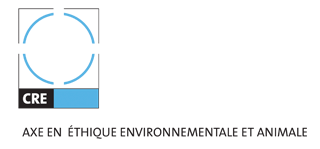Anna-Liisa Aunio
Postes occupés
| 2009-2010 | Chercheur-se postdoctoral-e, Éthique environnementale et animale |
Biographie
As a committed environmentalist and political sociologist, my research interests include the politics and ethics of international environmental governance, non-governmental organizations, and transnational mobilization. I recently received my doctoral degree from McGill University in the department of Sociology. My doctoral research focused on NGO engagement in the United Nations Framework Convention on Climate Change (UNFCCC). Through participant observation, interviews, and network analysis, I analyzed the impacts of the institutionalization of the UNFCCC on NGOs engaged in the international negotiations. In doing so, I drew conclusions about the impacts of professionalization and bureaucratization of NGOs within transnational politics. This research forms the basis of two distinct postdoctoral projects I lead at CRÉUM.
The first, funded by CRÉUM, examined the nature and consequences of NGOs’ authority and legitimacy in environmental governance. Situated at the intersection of neo-institutionalism, international relations theory, and social movement theory, this project brought to bear the insights of my doctoral research on examining NGO engagement in the Convention on Biological Diversity (CBD). Through a comparison of the UNFCCC and CBD, I elucidated the changing nature of NGO authority within transnational politics and drew conclusions about their capacity to effectively engage in solving environmental problems. Particularly as they are cast as democratic and representative forces within international spaces, interrogating their participation will help us understand how they should be integrated into environmental regimes.
The second project, funded by the National Science Foundation (NSF), drew on my doctoral research to examine the formation of climate change policy networks within the UNFCCC negotiations. The project, entitled COMPON, examined the diffusion of knowledge and policy from the Intergovernmental Panel on Climate Change (IPCC) to national level policy-making and the reduction of greenhouse gas emissions. Currently, 17 countries are engaged in examining the domestic-level policy networks that have formed with reference to climate change. The international component of this project connected these countries’ networks to their participation in the international framework. Through an examination of the diffusion of ideas and relations from the international to the national context, we hope to help policy-makers and advocates understand how to more effectively respond to the climate change crisis.
Ultimately, I hope my research has implications for the very real challenges of environmental degradation and creating a sustainable world.



